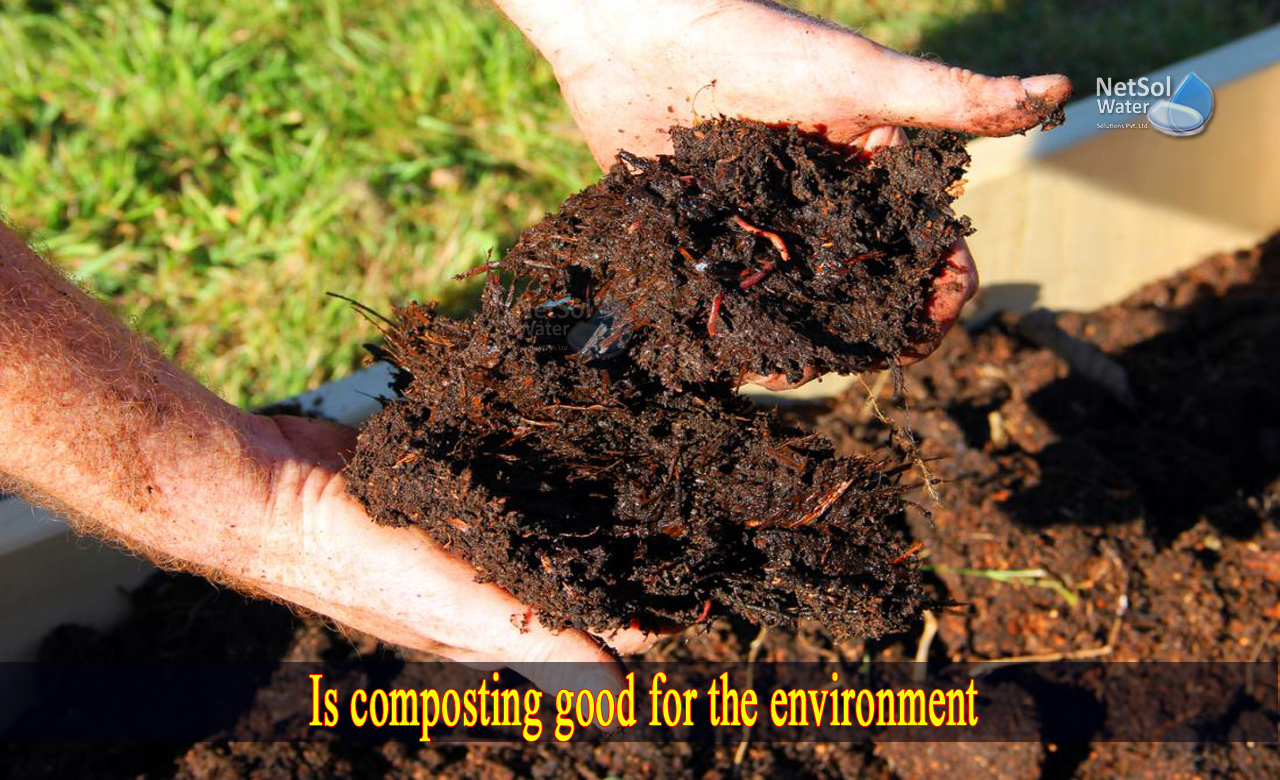Is composting good for the environment?
Approximately one-third of all food produced globally is wasted, with much of it ending up in landfills as a source of methane, a greenhouse gas 25 times stronger than carbon dioxide. Composting is a simple process that almost anyone can do to eliminate waste.
1: Retention of water
Compost aids in the retention of moisture in the soil. Adding compost as a thin coating to bare soils forms a barrier that keeps soil moisture from evaporating. This is referred to as top- or side-dressing.
This aids in reducing runoff, preventing/reducing erosion and establishing vegetation. It can also help with reforestation, restoring wetlands and habitat revitalization activities by improving polluted, compacted and marginal soils.
You might also be shocked to learn that increasing the organic stuff in soil by 5% quadruples its water holding capacity. This minimizes the requirement for water in plants, given that many parts in India endure summer drought.
2: Lowers groundwater pollution
This is possibly one of the most essential of the many advantages of composting.This is due to the fact that groundwater accounts for about half of all drinking water worldwide. Compost improves water infiltration and percolation and minimizes related leaching potential.
3: Improves the quality of downstream water
Compost enhances downstream water quality by holding contaminants such as heavy metals, nitrogen, phosphate, oil and grease, hydrocarbons, herbicides and pesticides.
4: Reduces the emissions of Greenhouse Gases
Did you know that landfills are a major source of greenhouse gas emissions?
Organic waste that you dispose of in landfills promotes anaerobic decomposition, which results in the release of methane, the second most prevalent anthropogenic GHG after carbon dioxide (CO2). Composting not only reduces methane emissions in the environment, but it also promotes plant development by boosting soil fertility. As a result, the CO2 level in the atmosphere is reduced.
5: Soil Biodiversity Preservation
Soil biodiversity refers to the presence of numerous living forms in the soil. It is one of the components that govern the health of the soil.Organic matter in the soil is important for the plant growth because it enhances water retention, supplies nutrients to plants and soil organisms and improves soil structure. Distributing the compost mix across the soil improves soil biodiversity and organic matter. This results in healthy soil, which in turn supports the flora that grows on it.
Conclusion
Composting converts decomposing waste into a beneficial soil enhancer that promotes plant growth. Farmers refer to it as "black gold."Whether you compost in your garden or at a community facility, experts believe it will minimize your waste and help fight climate change in a modest manner.If you have any concerns regarding what composting will look like for your company, please contact us. We provide the best food recyclers to convert your food/organic waste into beneficial fertilizer.
Netsol Water is Greater Noida-based leading water & wastewater treatment plant manufacturer. We are industry's most demanding company based on client review and work quality. We are known as best commercial RO plant manufacturers, industrial RO plant manufacturer, sewage treatment plant manufacturer, Water Softener Plant Manufacturers and effluent treatment plant manufacturers. Apart from this 24x7 customer support is our USP. Call on +91-9650608473, or write us at enquiry@netsolwater.com for any support, inquiry or product-purchase related query.



